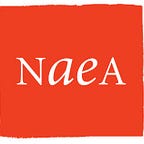Issue 18 Call for Proposals: When Museum Education Meets Legislation
In the last three years, many states have seen a marked increase in legislation targeting educators, restricting the content of classroom curricula, and limiting student access to literature and services necessary for their well-being. Recent legislation has also limited and restricted the scope of exhibitions and programming museums can offer in some states. Laws passed throughout the country have created new barriers to instruction and information related to race, gender, and inequality, creating serious challenges for educators committed to social justice and dismantling discrimination.
In this issue of Viewfinder, we explore museum educators’ complex relationship to these laws and how institutions and individuals approach this increasingly restrictive and oppressive landscape. As museum educators, we work with public schools, partner with classroom teachers, create educational programming and resources, and participate in our local communities. We are eager to hear how museum educators navigate these new laws with and for the audiences we serve while continuing to advance the work of social justice.
Questions to consider:
- In what specific ways are museum educators and museum programming development impacted by state-level legislation?
- What are museum educators doing to subvert, resist, and/or work within the confines of restrictive legislation?
- How have museum educators been supported and/or limited in this work by their institutions? What conversations have taken place with docents, volunteers, gallery staff, leadership, visitors, or local teachers and school districts around the content and implications of the new laws?
- What challenges or opportunities have museum educators encountered in continuing to address legacies of injustice and exclusion?
- In what ways have museums and museum educators been impacted even in areas where restrictive laws have not been passed or proposed? How do those in less directly affected places support colleagues and partners in more restricted areas?
Your abstract should be 300 words or less. We are interested in both traditional and experimental formats for submissions, including but not limited to: academic articles; personal narratives and reflections; artworks; poetry; syllabi/lesson plans; interviews; exhibition or book reviews; audio/video pieces; you tell us! We want to support you and your vision.
Museum education professionals, researchers, and students are invited to submit a 300 word abstract by November 6, 2023 via our submission link.
